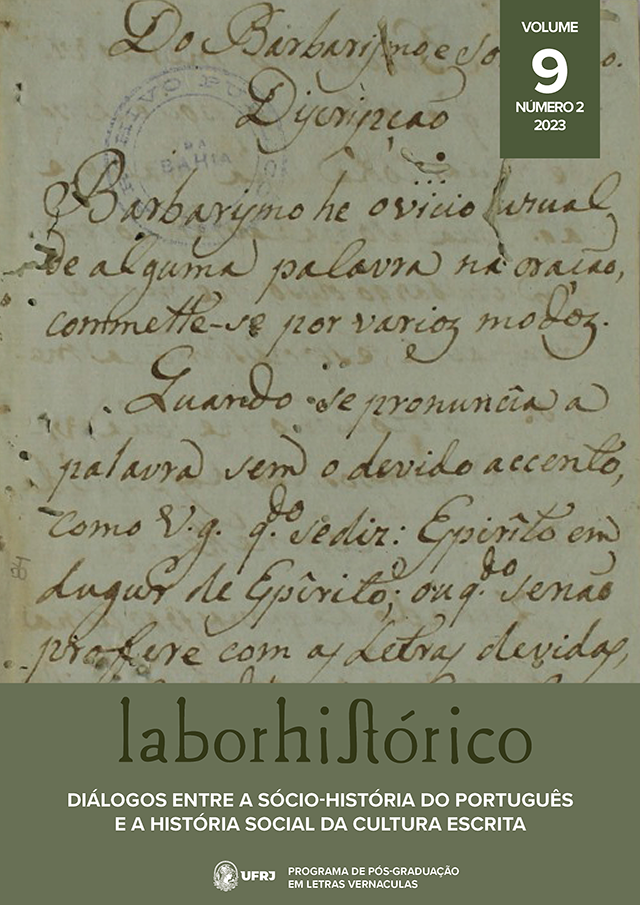From many stories to a socio-history of Portuguese: A 19th century manuscript and a methodological experience
DOI:
https://doi.org/10.24206/lh.v9i2.56386Keywords:
Interface. Estudos linguístico-filológicos. Cultura escrita. Livro de Razão. EscolarizaçãoAbstract
This article aims to present a methodological experience, based on the interface between linguistic-philological studies and the Social History of Written Culture, based on the semi-diplomatic edition of the Livro de Razão do Campo Seco, a manuscript produced between 1794 and 1838 by three members of the Pinheiro Canguçu family (Antônio Pinheiro Pinto, Inocêncio José Pinheiro and Miguel Joaquim de Castro Mirante) in Bom Jesus dos Meiras, present-day Brumado. To this end, the context of formation and dissemination of Brazilian Portuguese is briefly characterized, highlighting the importance of interdisciplinary dialogue as a fruitful resource in the reconstitution of the history of the Portuguese language. The results obtained reveal a new look at the sources, with emphasis on the elaboration of the profile of the person who wrote and their position in the community, in addition to indicating a solution for the aspect of representativeness of the sources. In addition, it is possible to reinforce information about the schooling factor, essential knowledge for understanding the linguistic polarization in Brazil.
Downloads
Published
Issue
Section
License
Authors who publish with this journal agree to the following:
a. The authors hold copyright of the published papers; authors are the sole responsible party for published papers content; the published paper is licensed under a Creative Commons Attribution-NonCommercial 4.0 International License which allows the sharing of the publication as long as there is acknowledgement of authorship and publishing by Revista LaborHistórico.
b. Authors should seek previous permission from the journal in order to publish their articles as book chapters. Such publications should acknowledge first publishing by LaborHistórico.
c. Authors may publish and distribute their papers (for example, at institutional repositories, author's sites) at any time during or after the editorial process by Revista LaborHistórico.


